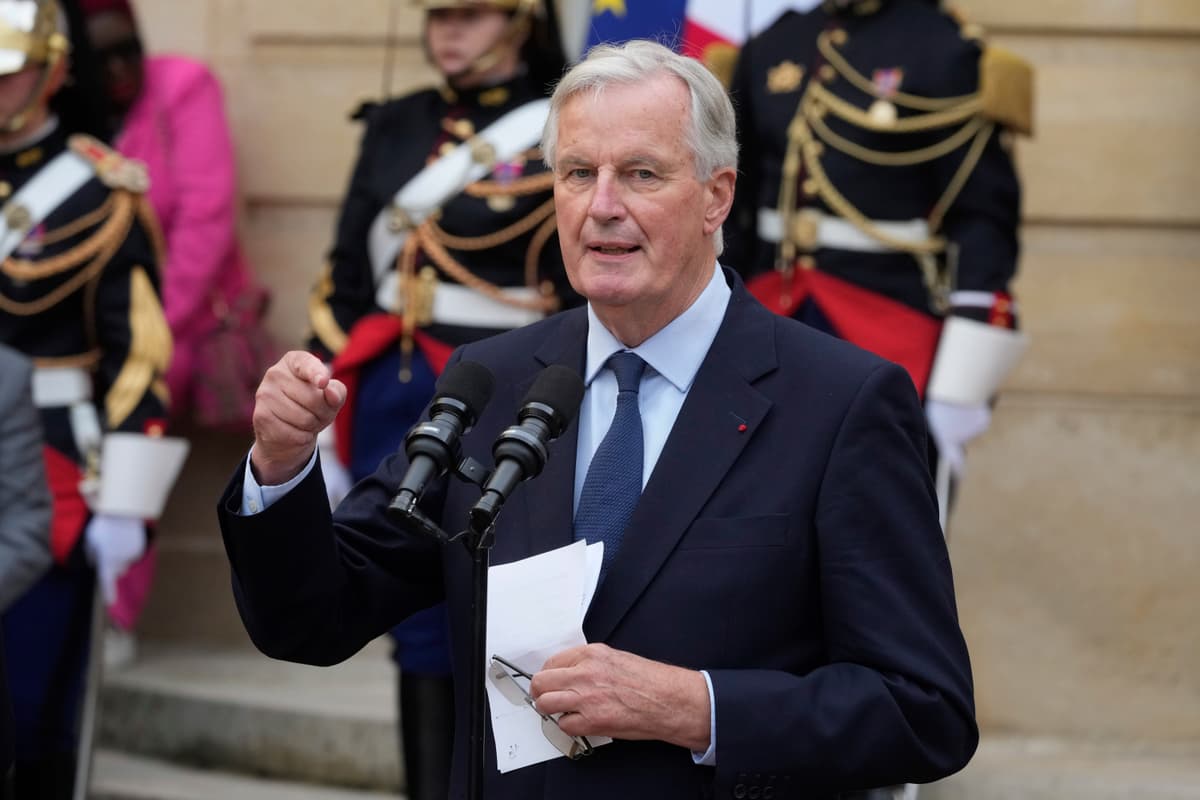From Paris to Athens, the European Left Is Collapsing
The disarray among the noble comrades is now on unambiguous display — offering a compass for America and a warning for Brussels.

ATHENS — One need not be a fan of Viktor Orbán or Marine Le Pen to see that European times are changing — and as left wing progressive parties wobble and fall all over the map, this is more than a case of plus ça change, plus c’est la même chose. It is a momentous pivot that started where revolutionary things tend to start — Paris — but is now the big story from Berlin to Athens.
The primacy of Paris and what it represents for Europe is never something to underestimate — nor is the political drama that is seldom a stranger to the continent’s oldest capital city, Athens. Great Britain is a special case. Its membership in any group that would put it on an equal footing with France was never going to last, and Brexit says a lot about the direction the EU is going.
It is the rebuke that French voters gave this past spring to Emmanuel Macron and his rose-tinted neoliberalism that precipitated the provisional triumph of the right on the Seine and pushed the National Rally, viewed in its prior iteration as ballot box poison, to center-right legitimacy. Now, as France onboards, in Michel Barnier, a new conservative prime minister, the hastily cobbled together left-wing New Popular Front is left gobsmacked.
The most it can do is try to table a motion of censure against Mr. Barnier’s government, but it seems after a long summer the French have little appetite for more parliamentary theatrics. So enter Greece. On Sunday, the leader of the Syriza left-wing opposition party, the 36-year-old Stefanos Kasselakis, was ousted following a censure motion. Mr. Kasselakis had replaced a former Syriza prime minister, Alexis Tsipras, as the party leader only 11 months ago.
The telegenic Mr. Kasselakis relied heavily on the use of social media platforms like TikTok to build his appeal but in doing so he was widely perceived as flaunting his wealth. That is a bigger taboo in Greece than gay marriage — which incidentally was legalized under the current center-right New Democracy administration — which led to accusations of dilettantism and a swift erosion of claims to legitimacy.
On account of such antics not only is the country’s official opposition party now without a leader, but recent polls show its support has dipped to 8.5 percent, behind the moderate, nominally socialist Pasok party. Little wonder that on Sunday Prime Minister Mitsotakis said that he doesn’t see “any alternative government proposal either from Syriza, which is in a state of political aphasia, or from Pasok.”
The same could be said for parties that straddle the left side of the political spectrum in countries like France, Italy, the Netherlands, and for that matter Hungary, Sweden, and Slovakia too. While New Democracy underperformed in the most recent European parliamentary elections, it is still relatively robust and has avoided the infighting that has reduced the left-wing flank of Greek politics to a tangle of irrelevance.
Some of Mr. Kasselakis’s detractors have criticized the former Goldman Sachs employee as an American project of sorts. Lending fuel to the argument is that he was a volunteer for then-senator Joe Biden for the 2008 presidential race, and more recently had a private meeting with Mr. Biden’s envoy to Athens, George Tsunis, while Mr. Mitsotakis was an official visit to London.
Like certain other figures on the European left — notably France’s — Mr. Kasselakis has also been a harsh critic of Israel, accusing it of “ethnic cleansing.” In Greece as in France, mainstream voters are simply not buying such arguments, which often come bundled with anti-capitalist, anti-NATO left-wing cant.
The picture in Germany is more complicated. The steady gains of the far right Alternative für Deutschland party and its cousin on the far left, the BSW, are not enough to sink the moderate Social Democrats or Christian Democrats. However, those parties and the conservative Germans in the eastern swath of the country who voted for them have put Chancellor Scholz on notice.
Berlin is already taking a page out of Budapest’s anti-EU playbook, imposing new border controls that are seen as necessary to manage illegal immigration but that are at odds with the bloc’s liberal asylum policies. Will Paris take the cue from Berlin? Before Mr. Barnier became prime minister, he once called for a moratorium on immigration. With the caviar left crumbling and Ms. Le Pen watching, his next moves are going to be newsworthy.
What this all adds up to is a loosening of the screws that hold the European project together. Brussels trades on neoliberal platitudes and the charade of multiculturalism, but both have failed Europeans. If the collapse of the left has emboldened the right, next in line will be the global capital of overregulation and bureaucratic bloat: Brussels.

